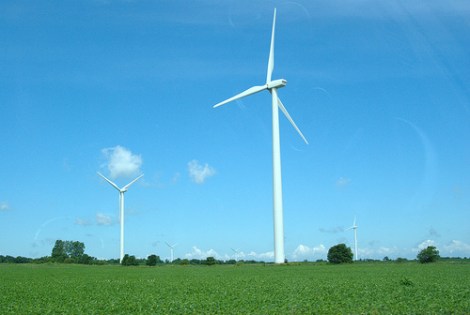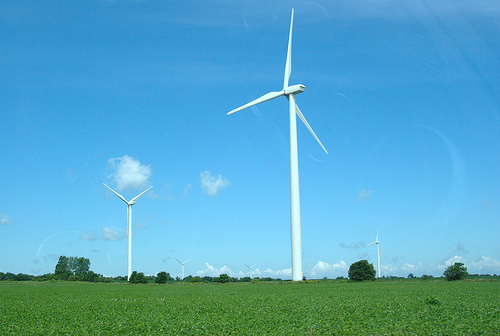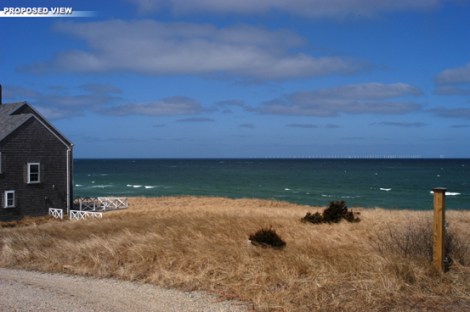Some day, Massachusetts’ Cape Wind project could generate 454 megawatts of power for the state, using 130 turbines located off the shore of Nantucket. It could tap into an innovative, undersea backbone — supported by a partnership including Google — running along the East Coast.
Some day. The project has been plagued by opposition and government intervention; most recently, a D.C. appeals court ordered the Federal Aviation Administration to revisit its assessment of the risk to aircraft. And if Mitt Romney — who’s become increasingly hostile to wind projects — becomes president, he just might heed the wishes of one of his richest backers and let the project die.
Some of the strongest opposition to Cape Wind has come from grassroots community groups like Alliance to Protect Nantucket Sound. The Alliance opposes the project because of how it might impact the views of those who live along the shore. (The image above demonstrates that impact. If you enlarge it, you’ll notice some white specks along the horizon.)
One of the reasons the Alliance has gotten so much attention is that one of its sponsors has a last name that acts as a media magnet: Koch. William Koch, brother to the more-famous Charles and David, has invested heavily in stopping Cape Wind. In part, it’s because he’s a local resident. And, in part, it’s because he is rich because of the fossil fuel industry.
Bill Koch is also a major contributor to getting Mitt Romney elected president, so far ponying up $2 million to a pro-Romney political action committee. The two became acquainted when Romney ran Bain Capital, and the relationship lasted through Romney’s tenure as governor. In that role, Romney publicly opposed Cape Wind, though he supported other regional wind initiatives.
Recently, Romney expanded his opposition to growth in the wind industry. As we’ve discussed previously, a vital renewable energy tax credit for wind is due to expire at the end of the year. Expiration of the credit could substantially curtail investment in wind energy, meaning, by one estimate, the loss of 37,000 jobs across the country — and a slowdown in an industry that is set to reach kilowatt-hour cost equivalence with fossil-fuel electricity within five years. Earlier this week, Romney campaign staff indicated that the candidate opposes the credit — though it’s not clear if he supports a short-term renewal. As ThinkProgress notes, Romney staunchly defends tax breaks for fossil fuel companies.

Photo by vaxomatic.
The wind industry has recently (and belatedly) started donating more heavily to Republican members of Congress. The CEO of the American Wind Energy Association (AWEA) gave $2,500 to the Romney campaign in the first quarter of 2012 — a mere $1,997,500 shy of Koch’s contribution to the pro-Romney PAC. Since Romney’s campaign announced its opposition to the tax credit after this donation, it appears that AWEA still has some work to do.
Meanwhile, Cape Wind is stalled, waiting for the FAA to reevaluate its impact. The Obama FAA initially signed off. It’s not clear what a Romney FAA would do, but we suspect we can guess. After all, Charles Koch seems pretty adamant that his view not include any wind turbines.
Perhaps he’d prefer a view of a fracking rig.





